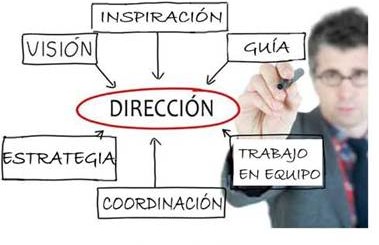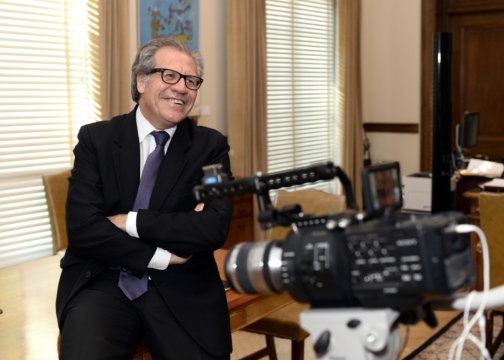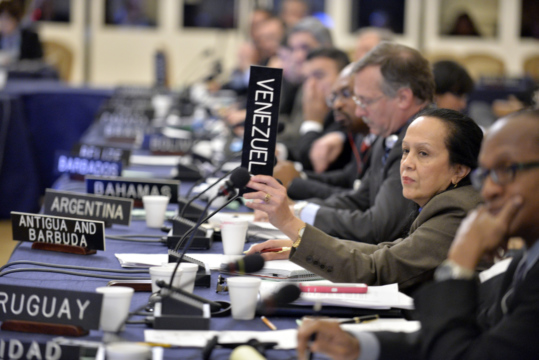
ITEN Webinars – “Educational Leadership: Confronting Education Challenges in the 21st Century”
Webinars hosted by the Inter-American Teacher Education Network discuss education challenges of the 21st century.
This post is also available in: Spanish
Over the past few months, the Organization of American States has seen a sudden and unusual spike in media attention. This attention has been for all the right reasons. Secretary General Luis Almagro has taken up the defense of democracy in Venezuela with belligerence. By doing so, he has injected new life into an organization whose main raison d’être is to defend the democratic gains the hemisphere has achieved over the last four decades.
Almagro’s visibility, however, is not enough to hide the deep problems the OAS is facing. These flaws have accumulated through the course of many years and threaten its future viability. Almagro may have given a dose of steroids to a body numb and weakened by numerous diseases—just enough to create a mirage of vitality in a languishing organization.
At the most basic level, the OAS’ problems are political: for a variety of different reasons, some key countries have lost interest in the organization. The United States has grown apathetic about hemispheric dialogue, in part because it prefers bilateral talks—in which it carries the winning position—and in part because it is overcome by the feeling that it has little control over the organization, a notion that would surprise the U.S.’s most heated critics in the region. At the other end of the hemisphere, Brazil has come to see the OAS as a distraction from its own geopolitical project, which is more tied to its dominant presence in South America and, as a result, reflected by UNASUR. In between, the ALBA countries—chiefly Venezuela, Ecuador, Bolivia, and Nicaragua—resist any attempt to revitalize the institution’s role as guardian of the Inter-American Democratic Charter.
Such a wave of apathy and resistances would make revitalizing the OAS difficult, even if its mission and efficacy were beyond all doubt. But sadly that’s not the case. Adding to political problems are the organization’s low level of interlocution, its disjointed functionality, and its precarious financial situation. These challenges both reflect and compound the OAS’ acute loss of strategic direction.
In principle, an institution like the OAS appears to be indispensable—no other body can facilitate a permanent dialogue between the countries of Latin America and the Caribbean and the United States and Canada. Truly hemispheric issues, including organized crime, migration, and even the defense of democracy itself, cannot be effectively debated anywhere else. But for this conversation to be more than a cocktail chat, a certain level of interlocution is required. One of the great disadvantages of the OAS versus the Community of Latin American and Caribbean States (CELAC) is that the region’s heads of state are disconnected from the organization. While often confused, the Summits of the Americas are not formally an organ of the OAS, nor is it the latter the institutional vehicle to implement decisions made at the Summits. On a good day, the OAS can summon a handful of foreign ministers to a General Assembly once a year. The real power lies in the hands of the 34 ambassadors sent by member states, who micro-manage the organization from the Permanent Council without having the political muscle to steer its course. Converting the OAS General Assembly into a biennial summit of heads of government from the Americas would help to give the organization the sense of relevance that it currently lacks.
Moreover, the institution suffers from a distinct lack of clarity about its mission. Overwhelmed by a proliferation of mandates accumulated through summits and assemblies, the OAS has become a chaotic mass of programs, almost all of which are too underfunded to have a real impact. There are among them, of course, some gems that improve the quality of life and democracy across the hemisphere. The Inter-American Commission on Human Rights, electoral observation missions, the Judicial Facilitators Program (justices of the peace that resolve local conflicts that would otherwise clog the courts), and the Universal Civil Identity Program in the Americas (to eliminate underreporting of births) are examples of what the OAS does well—and with very few resources.
The OAS should define clearly the areas in which it can add value, either because it already has a successful track-record, or because the issues require a genuine hemispheric dialogue. This may mean concentrating the OAS on the defense and promotion of democracy, conflict prevention and resolution, the protection of human rights, security and organized crime, and the development of international law in the hemisphere. Conversely, this means giving up the organization’s functions in the area of development—not because development is irrelevant, but rather because OAS programs in the area are, almost without exception, poor quality copies of those undertaken by other institutions like the IDB and the UNDP.
If the organization’s relevance and mission are not clear, it will be difficult to convince the member states to shoulder its costs. It shouldn’t be surprising that membership dues have been frozen for more than 20 years, and that the organization has endured chronic financial shortages for over a decade. During 2015, the OAS’ deficit grew to at least $10 million in an annual regular budget of $84 million.
The problems faced by the OAS are thus interrelated: if the institution doesn’t demonstrate relevance and narrow its programs to those that are effective, it cannot resolve its financial woes. At the same time, it’s critical to understand that much of the OAS’ dysfunction comes from the tight grasp of the Permanent Council and the General Secretariat’s lack of autonomy to manage the institution. It is urgent to hire professionals to manage the institution, as it is to craft rules that prevent, to the extent possible, the ambassadors’ constant political meddling. It’s obvious that the General Secretariat should be subject to the authority of the member states, but the current situation goes far beyond accountability and dooms the OAS to obtain meager results in many of its central functions.
The key question is how to make the OAS a priority for anyone—at present, it is for none. This requires a serious strategic discussion about its future, a debate has not happened yet and that will have to result in profound institutional changes. In the absence of this, the interest generated by Almagro’s exploits will be fleeting and the OAS will continue its long descent into irrelevancy. And the hemispheric agenda will suffer as a result.
Kevin Casas-Zamora is the director of the Dialogue’s Peter D. Bell Rule of Law Program and previously served as Secretary for Political Affairs at the OAS and Second Vice-President of Costa Rica.
Webinars hosted by the Inter-American Teacher Education Network discuss education challenges of the 21st century.
By choosing to accept the Oswaldo Payá award in Cuba, the OAS Secretary General has taken a characteristically brave gambit.
Headlines out of next week’s OAS General Assembly will inevitably focus on Venezuela—the first item foreign ministers will take up when they gather in Cancún, Mexico.

